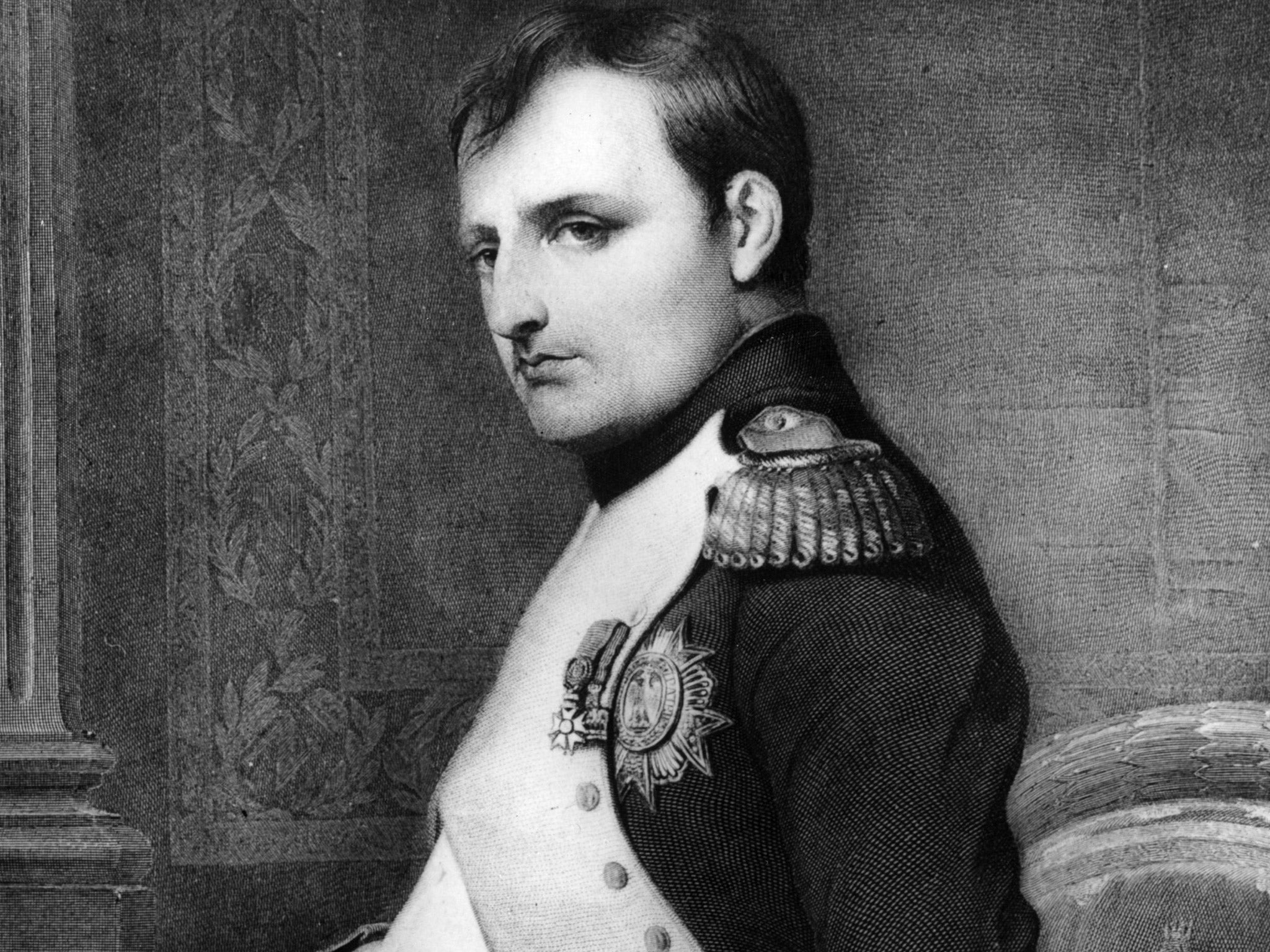Napoleon Bonaparte looked 'fiendish' while plotting escape from Elba, according to cousin of William Wordsworth
William Crackanthorpe was granted an audience with the exiled and dethroned French emperor less than a year before the Battle of Waterloo

Napoleon Bonaparte adopted a “fiendish” appearance when he became lost in thought during his first exile on the island of Elba, according to a cousin of the poet William Wordsworth.
William Crackanthorpe’s prescient description in a letter to his sister Sarah in July 1814 was written when Napoleon was planning his escape from the island and just under a year before his final defeat at the Battle of Waterloo, The Guardian reported.
Mr Crackanthorpe went to Elba and was granted an audience with Napoleon, saying his party were “most courteously received”.
“He kept us in conversation about an hour, speaking generally upon indifferent subjects but with a gaiety and gentlemanlike manner which quite astonished me as we were all in uniform,” he said.
Perhaps fishing for intelligence about his likely enemy, Napoleon asked a number of questions about the English military, but appeared to know more than his guests. Mr Crackanthorpe said that “in all the details… he seemed much better informed than any of us”.
The letter contained a hint that Napoleon might be hatching some kind of plot.
“At intervals… he seemed to relapse into a kind of reverie, when his countenance assumed that fiendish appearance, which the light of the moon which shone upon it perhaps rendered more horrid than it otherwise was, and I doubt not that he breathed vengeance within himself against us for having come to see him in his humility,” Mr Crackanthorpe wrote.
“Our audience was however most gracious and although I only saw him as a wild beast in his cage, I nevertheless congratulate myself that I have been presented to the man who made Europe tremble for so many years and who so nearly accomplished his grand object of universal domination.”
The letter is on display at an exhibition at Cambridge University’s library from 30 May.
Another letter from Captain William Turnor, which was shortly after Waterloo, spoke of the “the most bloody as well as the most decisive battle that has been fought since the commencement of the French Revolution”.
“The Cannonade was horrendous on both sides. The French fought with desperation & I am fully convinced that no troops on Earth except the English could have won the victory, they are in action savagely courageous,” he wrote.
Napoleon “shewed the greatest courage; led in person many charges both of Infantry and Cavalry”.
After his defeat, Napoleon was exiled to the island of St Helena in the Atlantic Ocean, dying at the age of 51 in 1821.
Subscribe to Independent Premium to bookmark this article
Want to bookmark your favourite articles and stories to read or reference later? Start your Independent Premium subscription today.

Join our commenting forum
Join thought-provoking conversations, follow other Independent readers and see their replies